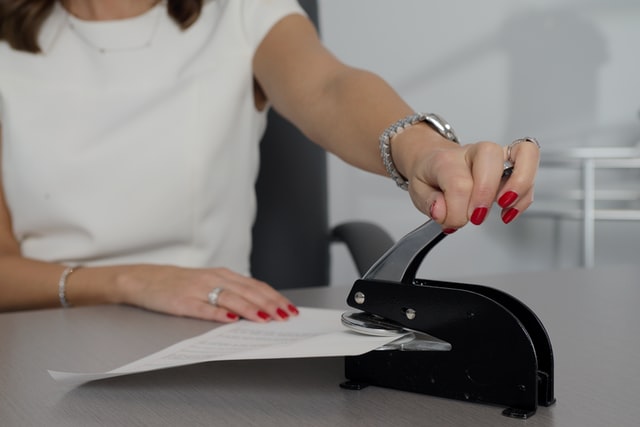While only lawyers can be civil-law notaries, almost anyone of any professional background can become a common-law notary in the United States. But what does one do? How do you become one? Let’s take a look.
Getting Started
Requirements can actually vary from state to state—a theme you’ll see a lot here—but the most common requirement is being a legal adult (18 years or older) without a criminal history. Some states require full-blown background checks and education courses.
Getting started is just a matter of filling out application forms and paying filing fees. But if approved, you may be required to take state-mandated courses, purchase your own stamp, notary bonds or E&O (Errors and Omissions) Insurance.
Stay Covered
Not all states require E&O insurance, but you may want to invest in it anyway. It will be your backup in the event of a mistake on your part that harms your clients.
Bonds have a near-identical purpose as “back up” to compensate signers in the case of a mistake on the part of the notary, but you may want to get E&O insurance anyway as you may be liable for not just the amount of the bond but additional fees associated with legal action taken.
No matter where you are, you will eventually have to periodically recertify your status as a notary. Requirements vary from state to state. For instance, Florida notary renewal includes having to send in an application no sooner than 60 days from the end of your commission while in New York it’s 90.
What Notaries Do
Notaries act as a witness to ensure that everyone involved in a transaction—be it signing important paperwork or giving official statements—are who they claim to be, are of sound mind and understand what they’re doing.
Documents can range from loans to even marriage licenses. Becoming a notary is actually a requirement of some jobs, such as court reporter or banker. If you’ve ever watched someone taking an oath in court, the person facilitating it was most likely a notary. If you’ve ever had to access a safety deposit box, the person watching you opening it was probably a notary as well. The exact services offered can vary from state to state, so it’s important to stay up to date with your local guidelines.
Lastly, notaries must be impartial, not taking sides in the matter. In most states and U.S. territories, giving legal advice about the documents being notarized (or statements being given) is not allowed.
If you’re wondering where to sign up, check with the office of your Secretary of State and they should be able to point you in the right direction.




